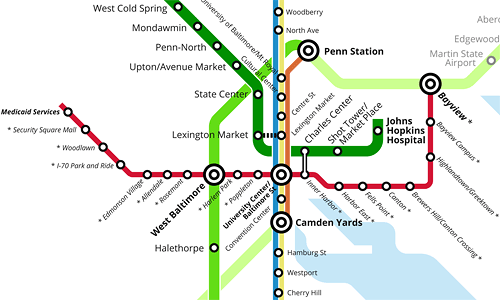Maryland Robbed Transit to Pay for Highways, So U.S. DOT Launched a Civil Rights Probe

Baltimore’s Red Line would have served residents of some the city’s poorest areas. But Governor Larry Hogan killed it and spent the money on highways. Map: Peter Dovak via Greater Greater Washington
Stay in touch
Sign up for our free newsletter
More from Streetsblog USA
Are Friday’s Headlines the New Normal?
Transit ridership hasn't come all the way back from the pandemic, and they're going to need more federal help, along with other changes, says Governing magazine.
Friday Video: How to Make Places Safe For Non-Drivers After Dark
A top Paris pedestrian planner, a leading GIS professional, and Streetsblog's own Kea Wilson weigh in on the roots of America's nighttime road safety crisis, and the strategies that can help end it.
OPINION: Congestion Pricing Will Help My Family Get Around As We Navigate Cancer Treatment
My partner was recently diagnosed with cancer. Congestion pricing will make getting her to treatment faster and easier.
Talking Headways Podcast: Money is a Lot of Different Things
It's Part II of our discussion with Jim Kumon!
If Thursday’s Headlines Build It, They Will Come
Why can the U.S. quickly rebuild a bridge for cars, but not do the same for transit? It comes down to political will and a reliance on consultants.




